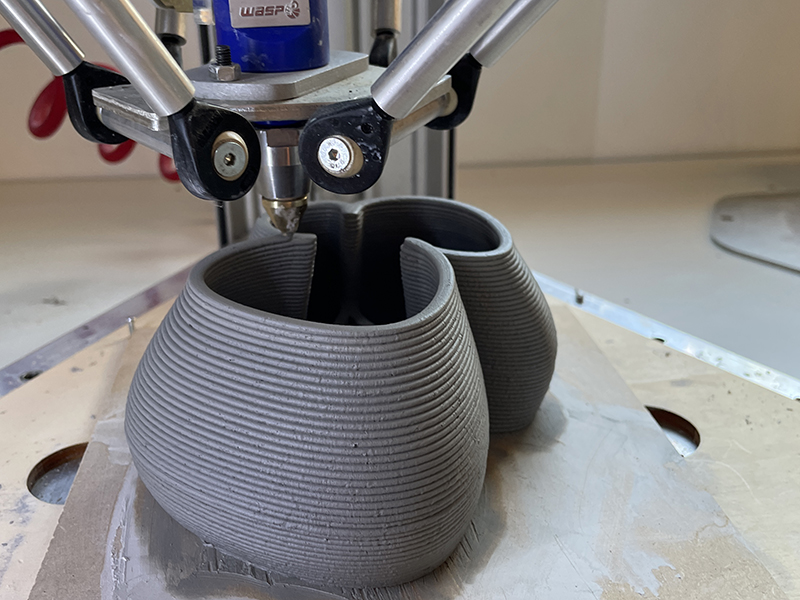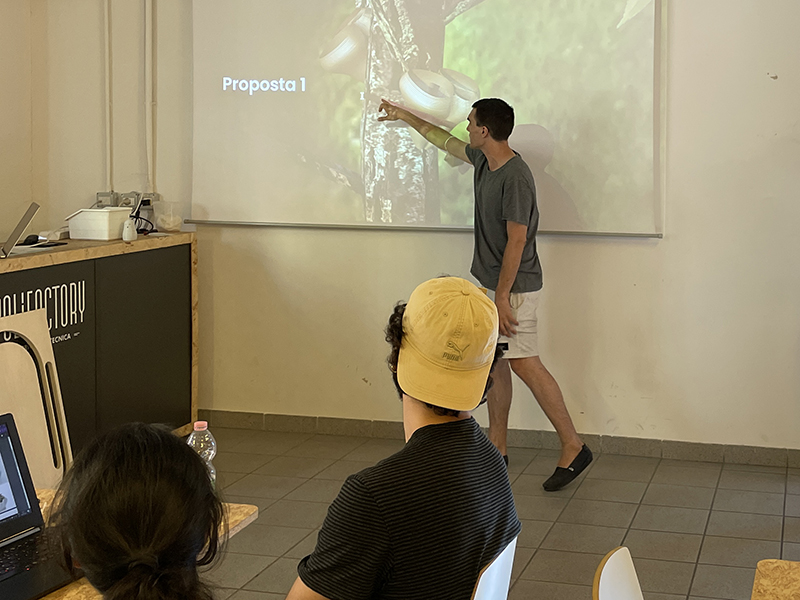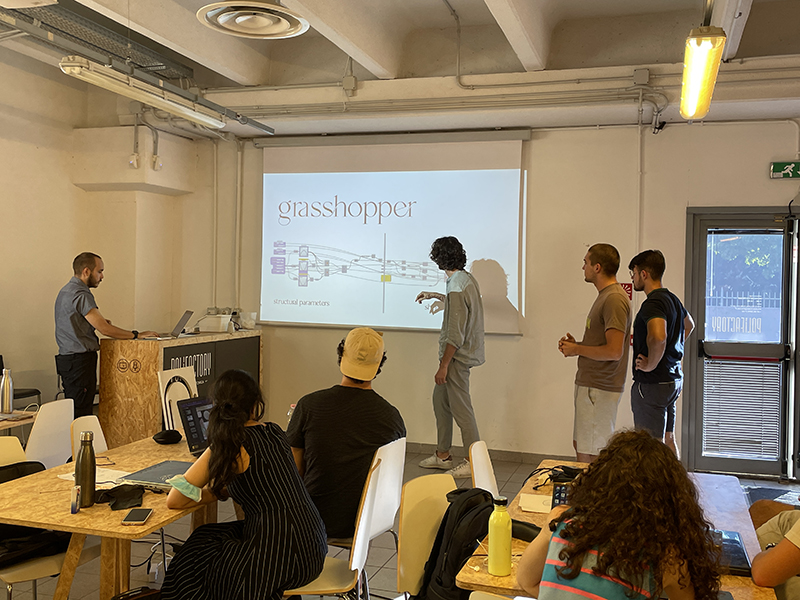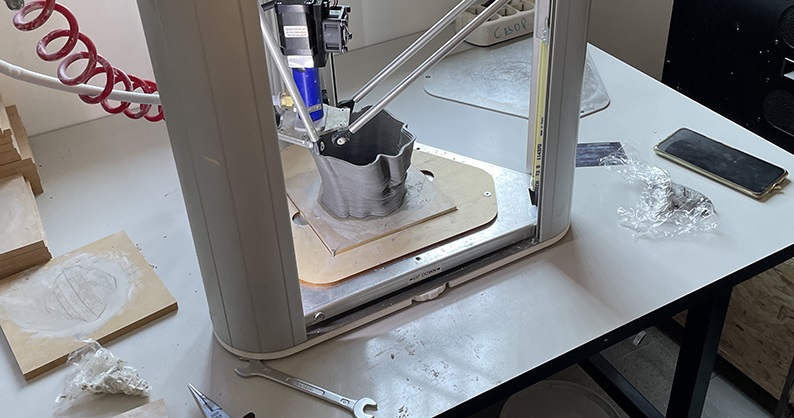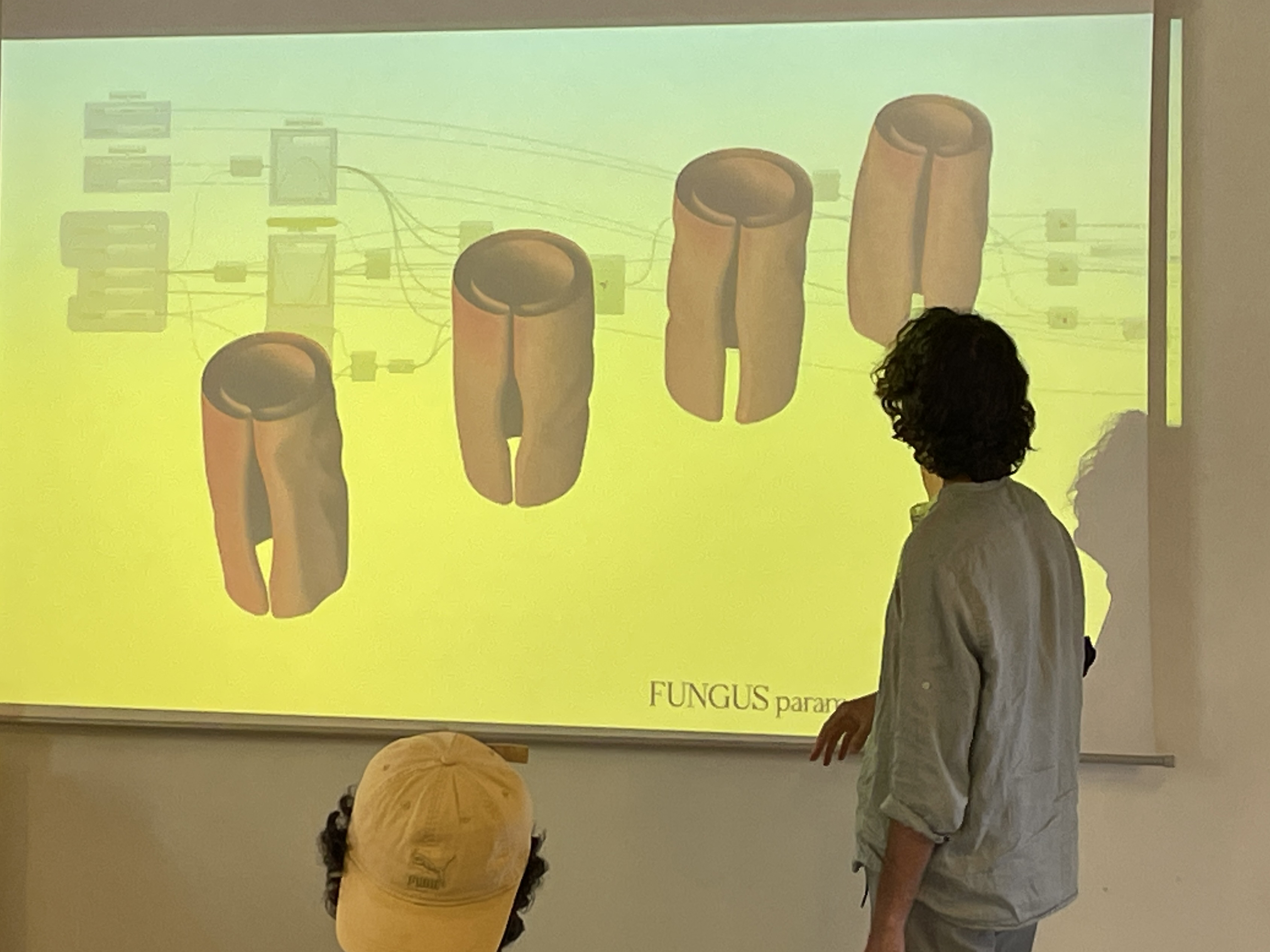As part of the Politecnico di Milano's “Passion In Action” programme, Polifactory runs every year a series of intensive training sessions called “Crash Courses'' with the aim of introducing Polimi students to digital fabrication techniques and technologies (mainly focusing on 3D printing), and to expand their technical and design culture related to making. Each course has a duration of 2 full days and involves approximately 20-30 students splitted into 4 or 5 teams. The course applies a learning by doing approach, in fact students are requested to learn a new technology by directly applying it to a project developed within the time span of the course.
One of the courses of this edition was dedicated to parametric design for additive clay manufacturing and one of the design briefs proposed to students consisted of the creation of solutions that can protect and stimulate urban biodiversity during MIND's redevelopment.
Why this challenge: Parametric modeling makes it possible to create objects that are easily configurable and adaptable to the versatile needs of nature and is a tool that relates very well to 3D printing of fluid materials. Moreover, ceramics is a safe and animal-friendly material and has interesting properties for plants (soil moisture control).
The concepts developed by students during the course are:
- Between Sky and Earth, a double shelter for aerial and terrestrial animals
- One claynest, a multi bird nest
- Fungus Grower, a tool to grow own oyster mushrooms at home
The products conceived by students will be located in the Herbula Garden realised at MIND by the T-Factor project and represent the starting point for the development of a product line dedicated to urban biodiversity that is going to be experimented through the Herbula Garden prototype.
Authors: Laura Cipriani and Francesca Foglieni, Politecnico di Milano - Polifactory
- Conscious and Sustainable Lifestyles
